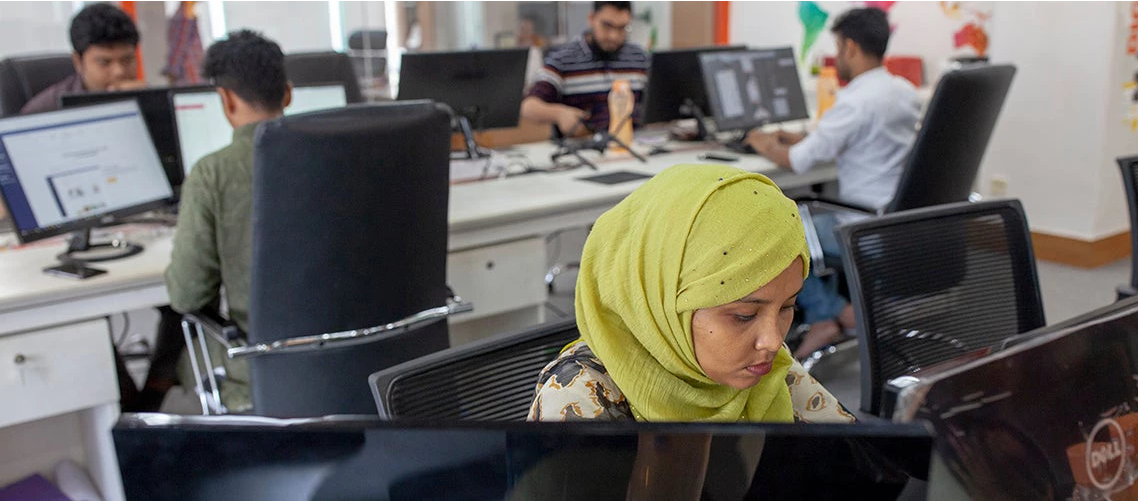As the world becomes increasingly reliant on digital connectivity, ensuring equitable access to the internet has emerged as a pressing social and economic imperative. In the United States, the Affordable Connectivity Program (ACP) has been a critical tool in bridging the digital divide, providing low-income households with subsidies to make broadband service more accessible.
However, with the program set to expire in 2024, there are growing calls from advocates, community leaders, and policymakers to renew and strengthen this vital initiative. Failure to do so could have devastating consequences, cutting off millions of Americans from the educational, economic, and social opportunities that the internet enables.
In this article, we’ll explore the importance of the Affordable Connectivity Program, the potential impact of its expiration, and the steps that must be taken to secure its long-term future.
The Affordable Connectivity Program: A Digital Lifeline –
Launched in 2021 as a successor to the Emergency Broadband Benefit program, the Affordable Connectivity Program (ACP) provides eligible households with a monthly discount of up to $30 (or up to $75 on Tribal lands) on their internet service. This vital support has helped countless low-income families, seniors, and individuals with disabilities access the internet, which has become essential for everything from remote learning and telehealth to job searches and social connection.
“The ACP has been a game-changer for our community,” says Maria Hernandez, a single mother living in Los Angeles. “Before, I had to choose between paying for internet or putting food on the table. Now, I can afford to keep my kids connected to their online classes and access important resources.”
The program’s impact has been particularly pronounced in rural and underserved areas, where the high costs of internet service have long been a barrier to connectivity. By making broadband more affordable, the ACP has opened the door to greater economic and educational opportunities for these communities.
“The ACP has been a lifeline for our small town,” explains John Williamson, the mayor of Plainville, Kansas. “Our local businesses can now compete on a level playing field, and our students can access the same online resources as their peers in urban areas.”
As of 2023, the Affordable Connectivity Program has enrolled over 15 million households nationwide, underscoring its critical role in supporting digital inclusion and equity.
The Looming Threat of Expiration –
Despite the program’s proven success, the Affordable Connectivity Program is set to expire at the end of 2024 unless Congress takes action to renew it. This impending deadline has sparked growing concern among advocates, who warn that allowing the ACP to lapse would have devastating consequences for millions of Americans.
“Losing the ACP would be a devastating blow to the progress we’ve made in closing the digital divide,” says Cheryl Leanza, the policy advisor for the National Digital Inclusion Alliance. “Suddenly, families who have come to depend on this lifeline would be forced to choose between internet access and other basic necessities.”
The potential impact of the ACP’s expiration is particularly acute in low-income and marginalized communities, where the program has been a critical factor in enabling access to essential services and opportunities.
“The ACP has been essential for our students and their families,” says Alison Weiss, the principal of a Title I elementary school in rural Alabama. “Many of our families simply wouldn’t be able to afford internet service without this support. Losing the program would set back their education and their futures.”
Beyond the immediate impact on individual households, the expiration of the ACP could also have broader economic and social ripple effects. Increased barriers to internet access could hamper job searches, remote work, and entrepreneurship, stunting economic growth and opportunity. Similarly, the loss of connectivity could exacerbate existing disparities in education, healthcare, and civic engagement.
“The internet has become the central nervous system of our society,” explains Cheryl Leanza. “Cutting off access to millions of Americans would have profound and far-reaching consequences that we can’t afford to ignore.”
Securing the Future of the ACP –
To prevent this looming crisis, advocates and policymakers are rallying to renew and strengthen the Affordable Connectivity Program. This effort has garnered bipartisan support, with lawmakers on both sides of the aisle recognizing the program’s vital importance.
“The ACP is not a partisan issue – it’s about ensuring that all Americans, regardless of their income level, can participate fully in the digital economy and society,” says Senator Cory Booker, a co-sponsor of legislation to extend the program.
Key priorities for ACP renewal include:
1. Extending the program’s expiration date: Advocates are pushing for a long-term extension, potentially to 2027 or beyond, to provide stability and certainty for participating households and internet service providers.
2. Increasing program funding: With growing demand for the ACP, there are calls to boost the program’s budget to ensure it can continue serving eligible households.
3. Streamlining enrollment: Simplifying the application process and expanding eligibility criteria could make the ACP more accessible to those who need it most.
4. Promoting awareness and adoption: Investing in targeted outreach and education campaigns could help more eligible households become aware of and enroll in the ACP.
By taking these steps, policymakers can safeguard the Affordable Connectivity Program as a crucial tool for digital inclusion and equity, ensuring that the internet remains a lifeline for millions of Americans.
“Renewing the ACP is not just about keeping people connected,” says Cheryl Leanza. “It’s about preserving opportunity, empowering communities, and building a more equitable future for all.”










Leave a Reply